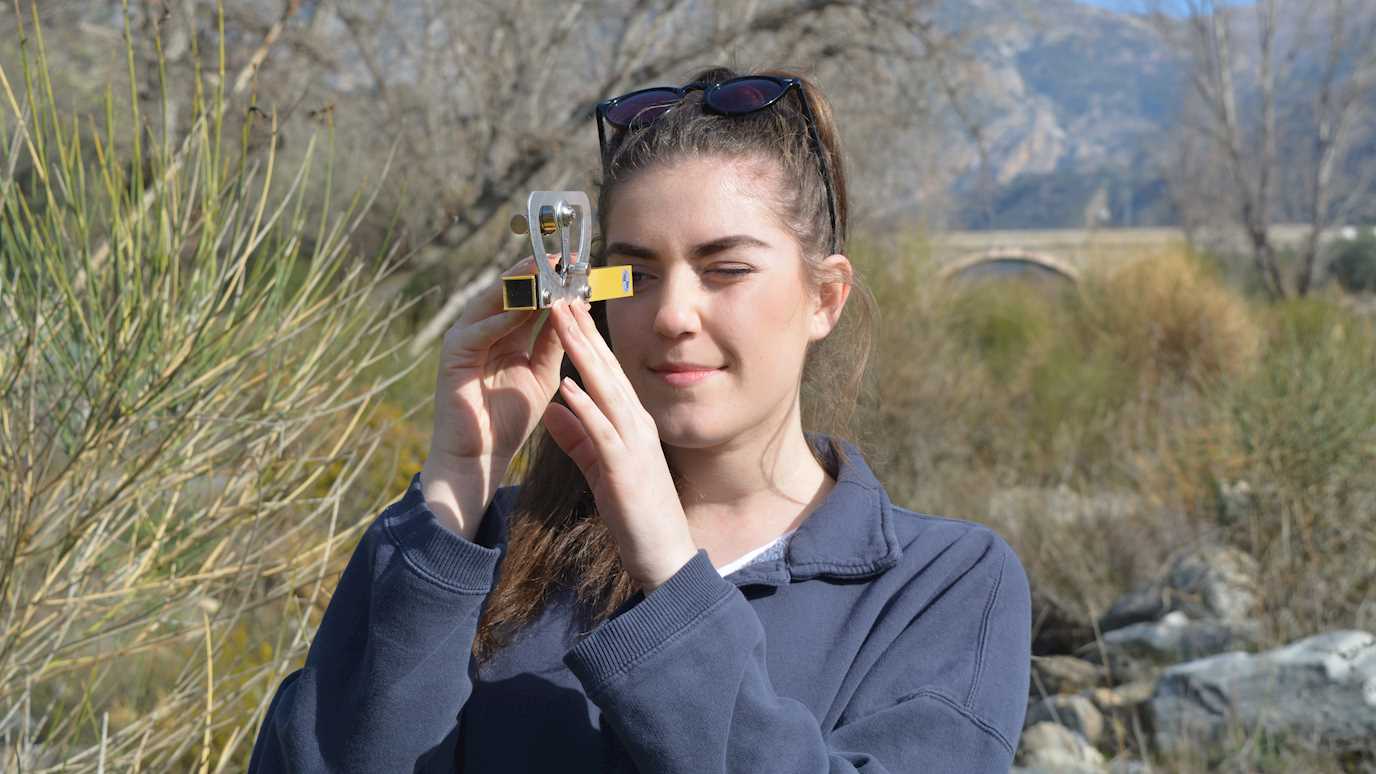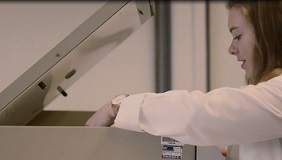The Department of Geography at Royal Holloway is one of the leading centres for international geographical research in the UK.
In the most recent Research Excellence Framework (REF, 2021) we were ranked fifth in the UK, and 100% of our research impact was rated 4* and 3* internationally excellent. We also have consistently high scores for 'overall student satisfaction' in the annual National Student Survey, and our students benefit from a strong support network.
We have a large community of postgraduate taught students on our range of MSc/MRes degree courses:
- MSc in Global Futures: Culture and Creativity
- MSc in Global Futures: Geopolitics and Security
- MSc in Global Futures: Justice, Development and Sustainability
- MRes Cultural Geography
- MRes Geopolitics, Development, Security and Justice (taught with the Department of Politics and International Relations)
- MSc Past Climate and Environmental Change
- MSc Sustainability and Management (taught with the School of Business and Management)
Funding
Various scholarship schemes exist to support students on our courses. These include an alumni discount that entitles all Royal Holloway graduates to a 15% reduction on their tuition fees.
Postgraduate research (PhD)
We have more than 70 PhD students in our vibrant community, pursuing cutting-edge research and undertaking advanced training, in a host of areas across political, cultural and physical geography.
Each year our department offers funded studentships in specific areas that will enhance our research capabilities. Our department is also part of the prestigious ESRC SEDarc Doctoral Training Partnership, AHRC Techne Doctoral Training Partnership, EPSRC Centre for Doctoral Training in Cyber Security for the Everyday, and the NERC Doctoral Training Partnership.
Studentships are available from several sources, which may vary, from time to time, in terms of eligibility and application procedures. We are currently advertising the following opportunities:
|
ESRC SEDarc Doctoral Training Partnership Studentships |
5pm on 5th January 2024 |
|
AHRC Techne Doctoral Training Partnership Studentships |
5pm on 5th January 2024 |
|
EPSRC Centre for Doctoral Training in Cybersecurity for the Everyday |
ongoing |
Please see below for information on how to apply
Develop your skills
We are committed to providing excellent training and career development opportunities for our PhD students. Successful applicants engage in departmental training to develop both their research-related and transferable skills. You can tailor your own experience, choosing from a wide variety of courses covering career development, communication skills, work placements and specialised research methods in Geography.
You are strongly encouraged to attend and contribute to research group seminars, departmental events and our annual Postgraduate Research Forum. In addition to departmental training, research students can take advantage of the University-led Researcher Development Programme.
How do I apply?
All PhD positions (whether self-funded or not) may be applied for only after consultation with a proposed supervisor. Before you start working on an application you will need to find a supervisor by contacting a member of academic staff in the geography department (with research interests similar to yours), to discuss your proposal. If you find a member of the academic staff who is prepared to supervise you, then they will able to answer any questions that you have and help you with your application. If you need help finding a member of staff to work with, you can contact Geography’s Postgraduate Lead, Dr Sasha Engelmann.
Applicants may also have alternative sources of funding. Overseas students may receive direct support from overseas organisations or governmental institutions.
Eligibility
Applicants should have the equivalent of a 2.1-honours in Geography or a related discipline, and meet University requirements for English (for international students). The chance of obtaining a studentship is increased for applicants holding a first-class Bachelor’s degree and/or a relevant MSc. Overseas applicants may apply for Technē, SeNSS and Cybersecurity Doctoral Training Partnerships. International applicants applying to departmental studentships (like the BGM and Widening Access studentship) are welcome but will be required to cover the difference between the UK and overseas tuition fee rates.
Step 1
Take a look at the research profiles of the staff members in geography, then contact your intended supervisor and find out whether they would be prepared to supervise you. You can then start to shape your specific ‘research proposal’ with advice from your potential supervisor. Each student can only prepare an application with one supervisor.
Step 2
Whether you are applying for a Departmental Studentship (like the BGM and Widening Access Studentship) or intend to enter the SeNSS or technē funding competitions, your application must be submitted through the University's online application system (called RH Direct), for which you need to register. The online application system provides a lot of detail, including a list of documents that are required for each PhD application. You will need to nominate two referees on this online form. They will be contacted by the University directly, but it is a good idea for you to contact referees before you submit your application to make them aware of your plans, and so they can respond to the University request swiftly. Please provide:
- an up-to-date CV
- degree transcripts
- English language qualifications (if English is not your first language)
- contact details for two references
- Research Proposal (see details provided below)
- Personal Statement (see detail below; for the BGM and Widening Access studentship, your personal statement should include how you meet criteria of the award)
In addition to applying through RH Direct, applicants applying to the SeNSS and Technē competitions must also send their draft SeNSS and Technē applications directly to Sasha Engelmann by the deadline listed in the table above. Blank SeNSS and Technē application forms can be provided by Sasha. Research proposal material can be duplicated across the RH Direct and SeNSS / Technē applications.
What happens next?
After completeness and validity checks, your electronic submission will be sent to the Department of Geography, together with the references obtained by the University. Once the Department is happy that all the required information is attached to your application, it is passed to the Postgraduate Research Committee, along with those of other applicants, for their consideration. The Committee may, at this stage, request further information from individual applicants. If you are unsuccessful at this stage you will be notified via email. If you are shortlisted, you may be invited to an interview, which under certain circumstances may be done by video link.
SeNSS and Technē applicants will be considered by the Postgraduate Research Committee, after which they may or may not be progressed into the wider SeNSS and Technē competitions. If progressed, it is likely that the department will provide feedback on SeNSS and Technē applications, and applicants will need to make further edits before SeNSS and Technē submission deadlines.
More guidance on some of the requested documents
Research Proposal (maximum 10,000 characters including spaces and references):
The research proposal should be completed by the applicant with input from the potential supervisor. It should include:
- If you are applying for a specific studentship, please state the name of the studentship at the top of the proposal. If you are eligible and applying for consideration of more than one studentship, please list all that you are eligible and wish to be considered for.
- A brief introduction of the research topic, including a review of the relevant literature, and a description of the main research questions to be addressed.
- A research background section outlining the academic literatures and debates to which your potential project contributes.
- A methods section stating how your project will be investigated (design, techniques, analysis).
- A timeline showing how the planned research can be completed within a three-year timescale (six years if part-time study).
Note, it is important that the expertise of your potential supervisors and the facilities available at RHUL (e.g. specialist equipment) are highlighted in relation to your research proposal.
A personal statement completed by you (maximum 500 words):
This should include information on:
- Your reasons for applying for a PhD, for our programme, and to carry out this project.
- What has prepared you to undertake the PhD, and what skill set and knowledge you have that will allow to succeed and make an impact (please highlight relevant achievements supporting why you would be a strong candidate).
- How you meet criteria of a specific studentship, such as SeNSS, Technē or BGM and Widening Access Studentship.
- Your career goals and ambitions
Enquiries
Dr Sasha Engelmann, Sasha.Engelmann@rhul.ac.uk, Geography PGR Lead
Find out about our PhD programme























